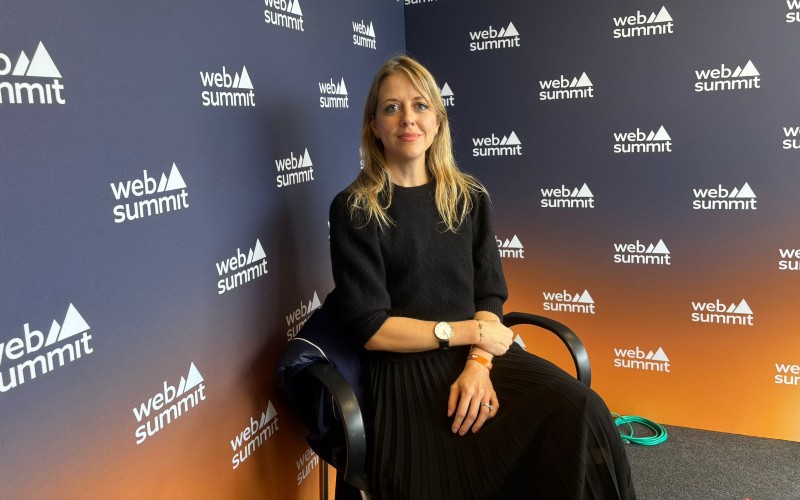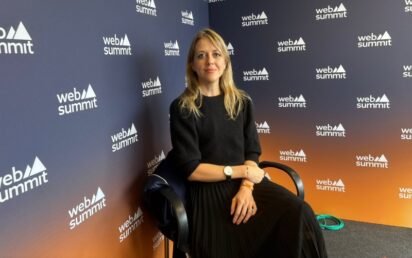When Clare Gambardella joined Zopa in 2018, the business was at a pivotal moment in its relatively short history.
The now-unicorn was in the process of moving from a peer-to-peer lending platform into a fully regulated digital bank.
Gambardella had joined as chief customer officer (CCO) from Virgin Active, where she had spent nearly five years and worked her way up to CMO.
Zopa describes itself as combining the reliability of a high street bank with the ease of app-based banking.
In September the digital bank revealed its plans to build a 500-strong workforce in Manchester after opening an office in the city.
In 2021 the digital bank achieved unicorn status when a £220m funding round pushed its valuation beyond $1bn.
Explaining her own role in Zopa’s success, Gambardella says: “I’ve always moved sectors every time I’ve moved jobs.
“I started in FMCG, then consulting, then health and fitness, and now finance.
“I really like that, because I like to take on new challenges.
“The benefit of moving into FinTech from outside is that you come with a really fresh perspective.
“You think about what the customer needs are and how you can meet that, rather than having a set way of how things are done in the industry.”
@businesscloud.co.ukIt’s Web Summit Day Two! Lots of big moves for the boys in blue today, as BusinessCloud embarks on day two of the flagship event Highlights included interviews with Sarah Franklin and Arvind Jain, the KPMG Global Tech Innovator Final and insight into a 15-year-old tech star #WebSummit #tech #uktech #business♬ original sound – BusinessCloud
Zopa’s shift to banking in 2020 marked a turning point in the company’s fortunes.
In the space of three years, the London-based FinTech has gone from being loss-making to turning a pre-tax profit of £34.2m in 2024.
“It was definitely a real learning curve when I joined,” Gambardella tells BusinessCloud at Lisbon’s Web Summit.
“But I was lucky enough to go through that point where Zopa was also developing and changing a lot.
“Obviously, going from peer-to-peer into being a fully regulated bank was a really interesting time and a really interesting journey.”
From loss-making to market leader
As CCO, Gambardella’s remit spans marketing, product design, the Zopa app and now consumer AI.
She says: “There’s a few different areas to my role that in some way I would hope contribute to that (increase in profit).
“The first one is obviously marketing – building our brand in a way that people can trust and feel at home with.
“The second thing is our app, which is the key interaction portal for customers.”
The key skill that she has been able to develop for the team is helping the business not only acquire users, but keep them engaged.
“One of the things we’re really proud of is that in the last year we’ve doubled the products we’ve sold to customers,” she says.
“That’s not only important from a profitability point of view, but it’s a great endorsement of customers wanting to do more with Zopa and having had a good experience with Zopa and wanting to come back.”
Zopa now serves around 1.5 million customers, up from roughly 1.2m at the start of the year, and Gambardella says that momentum is showing no sign of slowing.
“We would love to see Zopa becoming the home of money for UK consumers,” she says.
“That means being able to deliver more value, more effortless experiences, and build deeper trust and relationships with customers.
“If we can do that for hopefully 5m customers over the next couple of years, that will feel like a really meaningful achievement.”
Scaling smartly with AI
Part of Zopa’s growth strategy now hinges on how effectively it can deploy AI to enhance both customer experience and operational efficiency.
Gambardella says the company’s approach to AI is pragmatic and focused on where it creates measurable value, rather than just using it for the sake of it.
“The first way in which we use AI is for internal productivity,” she explains.
“We’ve got about 500 custom GPTs to basically help us go to market faster and be more efficient.
“The second area is operational AI – things like our operations chatbot. At the moment, all of our chats now run initially through AI.
“We see around 12,000 chats a week, and the customer satisfaction on those is around 10% higher than average, because we can triage them a lot faster.
“Our consumer AI assistant focuses on making payments faster with your voice – to yourself, to others, and via any bank account that you link. It’s all about speed and ease.”
However, she is also wary that customers feel comfortable with the human element when looking for a service.
She continues: “Around 60 per cent of UK consumers are using AI, but only around 30 per cent would say they would trust a bank that is run off AI predominantly,” she says.
“It’s really important to combine AI with humans. Our operations team handles complex matters the chatbot can’t resolve – things like fraud or vulnerability – where empathy is vital.”
Building sustainable growth
With Zopa’s profitability and customer base both growing rapidly, Gambardella says maintaining balance between innovation and stability is key.
“We believe that creating a sustainable business for both customers and investors is really important,” she says. “And I guess we’ll see where that ends up.”
The company’s long-term plans include a recent major expansion into Manchester and building on September’s acquisition of Rvvup to transform its retail finance offering.
“It’s been an exciting time for all of us,” she says.
“We’re in the very early stages of that acquisition. It has made our retail banking and POS offering much, much stronger.”
Workforce of the future
Zopa’s growth story is as much about resilience as it is revenue.
Amid the AI boom, which has the potential to reshape industries, Gambardella is leading initiatives that prepare people for what comes next.
“We have a bit of a history of creating cross-industry ESG campaigns,” she says. “We initiated the 2025 FinTech Pledge in 2022, which delivered 25m actions to transform customers’ financial resilience.
“So our next focus is Jobs 2030 – re-skilling 100,000 financial and tech workers in AI.”
The campaign stems from research with Juniper Research, which found that the financial services industry will invest £1.8bn in AI by 2030.
“There will be productivity increases and cost savings, but there will also be a huge shift in the type of skills workers need,” Gambardella says.
“We believe that for FinTech to be successful, we really need to be creating the workforce of the future.”
Zopa is now taking the AI training it developed internally and making it available externally through industry partnerships.
“We have our first major partner to announce quite soon,” she adds.
“The idea is to lead a reskilling effort across the industry and make sure people get the skills they need to work in the future environment.”


